Young voices, lasting impact: community-based peer research in Wigan
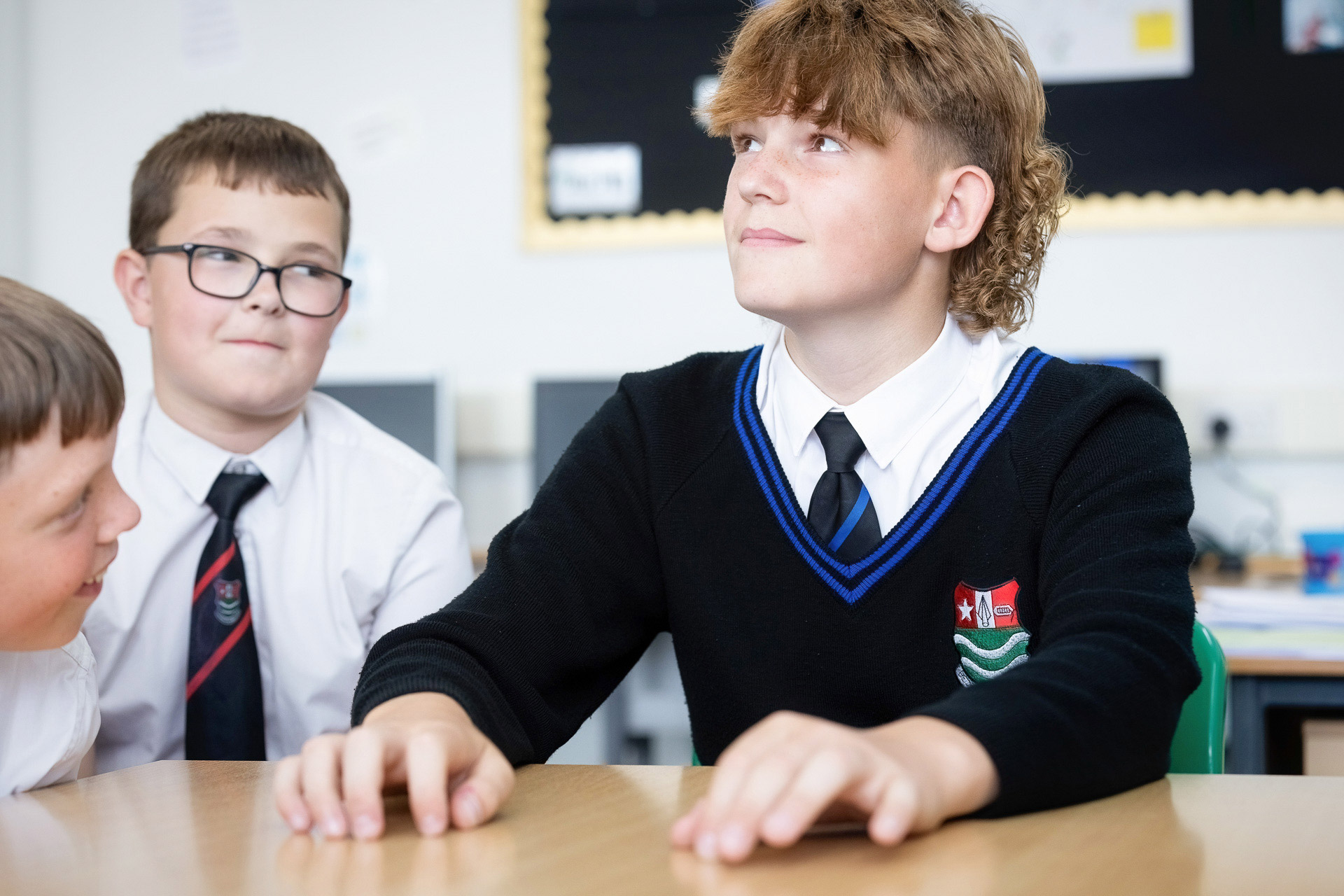
In September 2024, we launched our Impact Programme in Wigan, marking our first expansion outside London. Initially engaging 250 children and young people across seven schools in Leigh, we will soon support 230 more children across a further six schools in Atherton and Tyldesley from September 2025. The programme addresses pressing local priorities – such as school attendance, mental health, and school exclusion – identified through extensive co-design with stakeholders, including the local authority, schools, the voluntary and community sector, children and young people and their families.
Evaluating with Coram: A partnership grounded in youth voice
To evaluate and capture learning from our expansion to Wigan, we have partnered with Coram’s Impact and Evaluation team. The Coram Impact and Evaluation team specialises in collaborative and participatory research approaches that prioritise the voices of children and young people. The Coram team is currently working with peer researchers across a wide range of research projects. To find out more about the aims of our learning partnership, visit this link.
For the evaluation of our programme in Wigan, the Coram team have recruited and trained seven young people aged 16-18 from the Leigh and Atherton areas to work as peer researchers. The peer researchers will work across the evaluation alongside Coram’s researchers and will play a core role in co-designing and running creative evaluation sessions with the children and young people in our programme. These sessions will involve a mix of creative activities and games designed to capture the experiences of the children and young people in a fun, accessible and engaging way. Peer researchers will also support Coram researchers to analyse the insights gained from these sessions.
This blog post details some of the work that peer researchers have done so far, and explores the potential value that they will add to the research process.
Understanding peer research
What is peer research?
Peer research is a widely-practised form of participatory research: it involves working with researchers who come from a similar background to participants, or who have lived experience of the research topic. Peer researchers can be involved in all stages of a
research project, including designing research questions, collecting data, and disseminating findings.
What are the advantages of peer research?
Peer research has many methodological advantages: for example, working with peer researchers can help build trust and rapport with research participants, resulting in more detailed and nuanced findings. Peer researchers may also have ‘insider’ knowledge that ensures researchers are asking the right questions, in the right way. This is particularly valuable for research with children and young people, whose voices and perspectives are often marginalized in conventional research processes (Christensen 2004) .
Peer researchers who come from similar geographical areas to research participants may also bring place-based knowledge and community experience: for example, they may have contextual knowledge about the services a young person has accessed, or about the local norms and values that shape a young person’s expectations and experiences around education.
Beyond methods: shared power and progress
The benefits of peer research are, however, more than just methodological. At its core, peer research is about sharing power, decision-making, rewards and recognition with the people and communities being studied (Fine and Torre, 2021). This means prioritising their concerns, and valuing their knowledge and worldviews, which may differ from those of academic or professional researchers. Peer research should also generate opportunities for personal or professional advancement for those involved.
This emphasis on power-sharing means that researchers should consider carefully the ethical and practical dimensions of working with peer researchers (Turcatti & Stockland 2024). Indeed, in addition to building their research skills and experience, this role offers peer researchers a paid opportunity to develop professional experience that extends beyond the realm of research. It reflects a meaningful investment in their personal development and long-term aspirations, and underscores our commitment to championing and nurturing local talent.
Getting started: Our first meeting and discovering local treasures!
In the first meeting, Coram invited peer researchers to bring an object that captured something they cherish about their local area. Some students crafted vibrant collages to express what Wigan meant to them, while others provided local insights into their community, ranging from sharing nearby walking trails to landmarks commemorating the area’s history.
Research 101: Hands-on learning
In the May half-term, Coram provided comprehensive training to the peer researchers, covering research theory and methods, ethical and data-protection considerations, safeguarding procedures, and interview techniques, including practical role-playing exercises. Given the age of the peer researchers, particular attention was paid to defining the limits of their role and involvement, especially in areas like safeguarding. By the end of the training, peer researchers reported feeling well-prepared and confident, both in engaging participants and accurately conveying key aspects of the AllChild programme.
Here’s what the peer researchers, in their own words, told us about their involvement in the training:
“The training has broadened my understanding of research methods, different ways of collecting data, evaluation, safeguarding and much more”
“It was helpful in understanding the several types of methods I will be doing with the children as well as discussing what to do in certain types of situations such as safeguarding.”
“I have also learnt about how to talk to the children and making sure that we do not ask any leading questions.”
Co-creating research tools
In the second session, peer researchers, alongside Coram researchers, worked to co-create research questions and tools aimed at exploring young people’s experiences of the AllChild programme. Peer researchers role-played various research scenarios – practising creative interviews, using expressive drawing, and trialing interactive icebreaker activities to help build rapport with young participants. They also reflected on how to adapt materials for different age groups. These interactive experiences gave them the opportunity to step into the participants’ shoes and put their learning into practice. They successfully anticipated challenges that may arise during research with children and young people and suggested thoughtful mitigations for them.
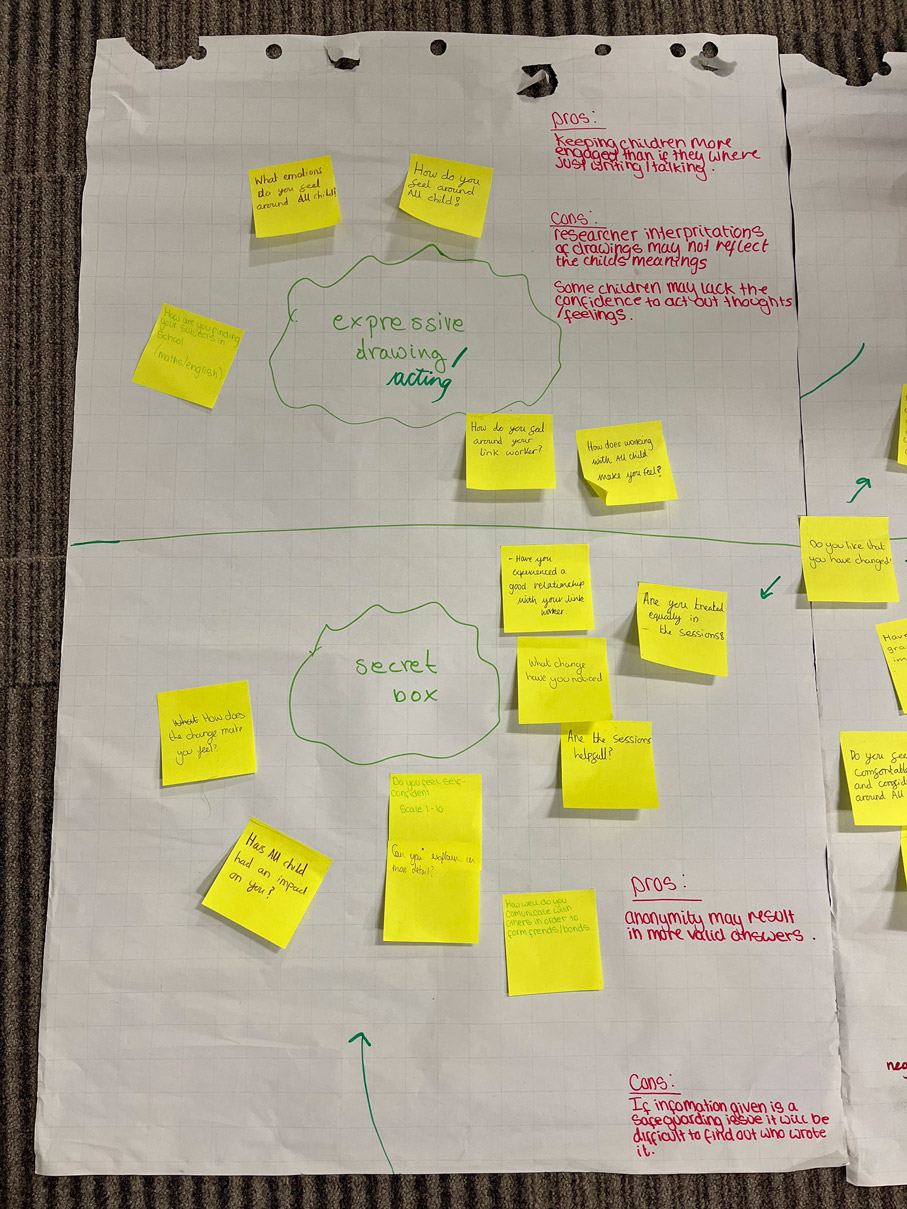
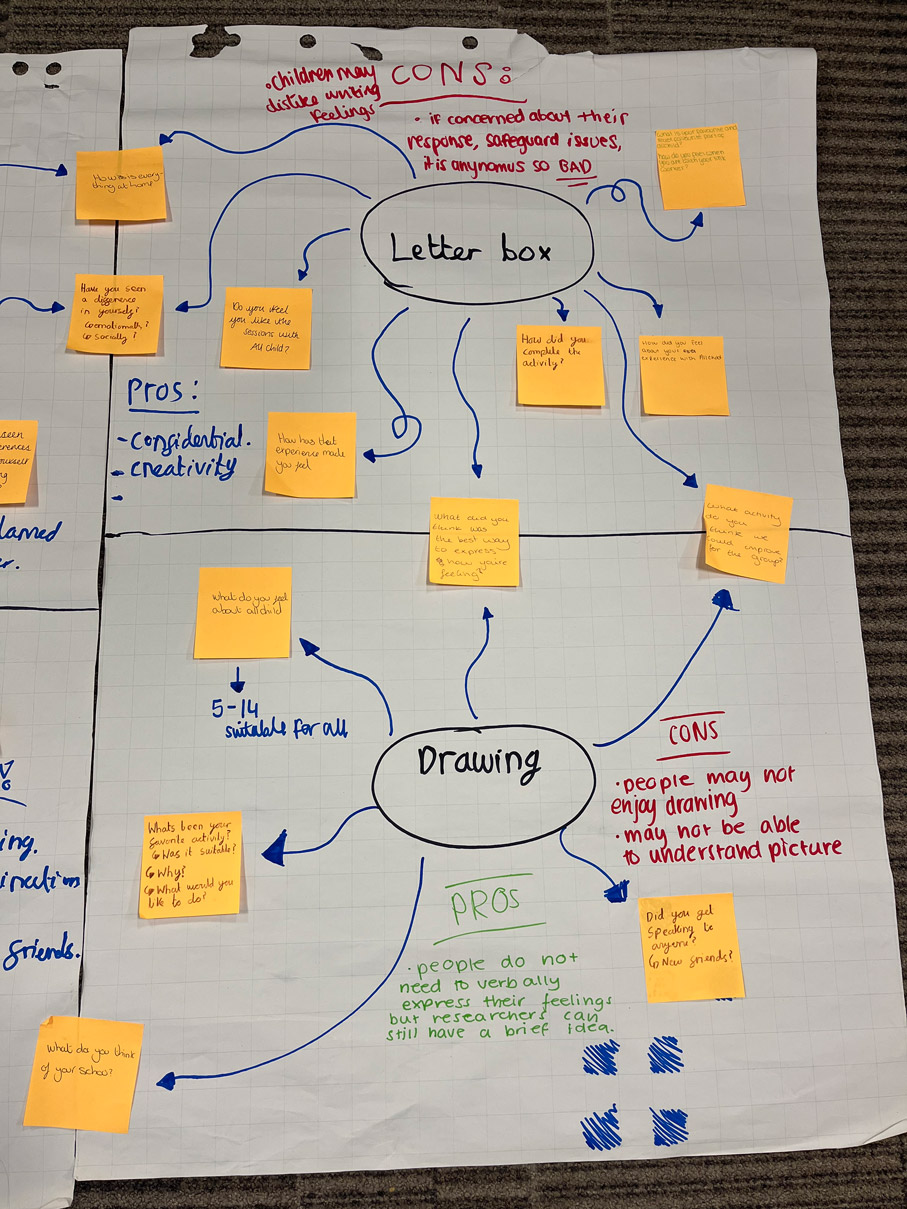
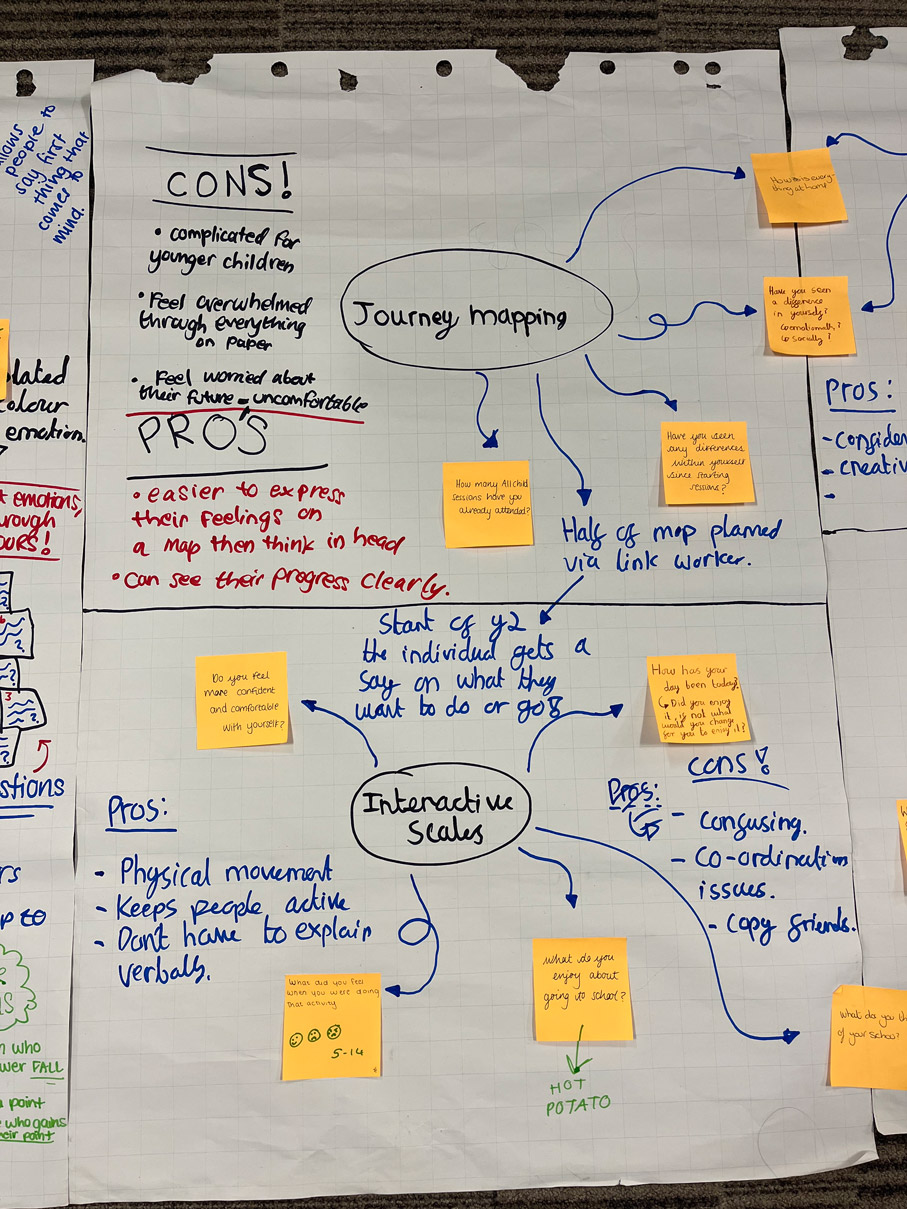
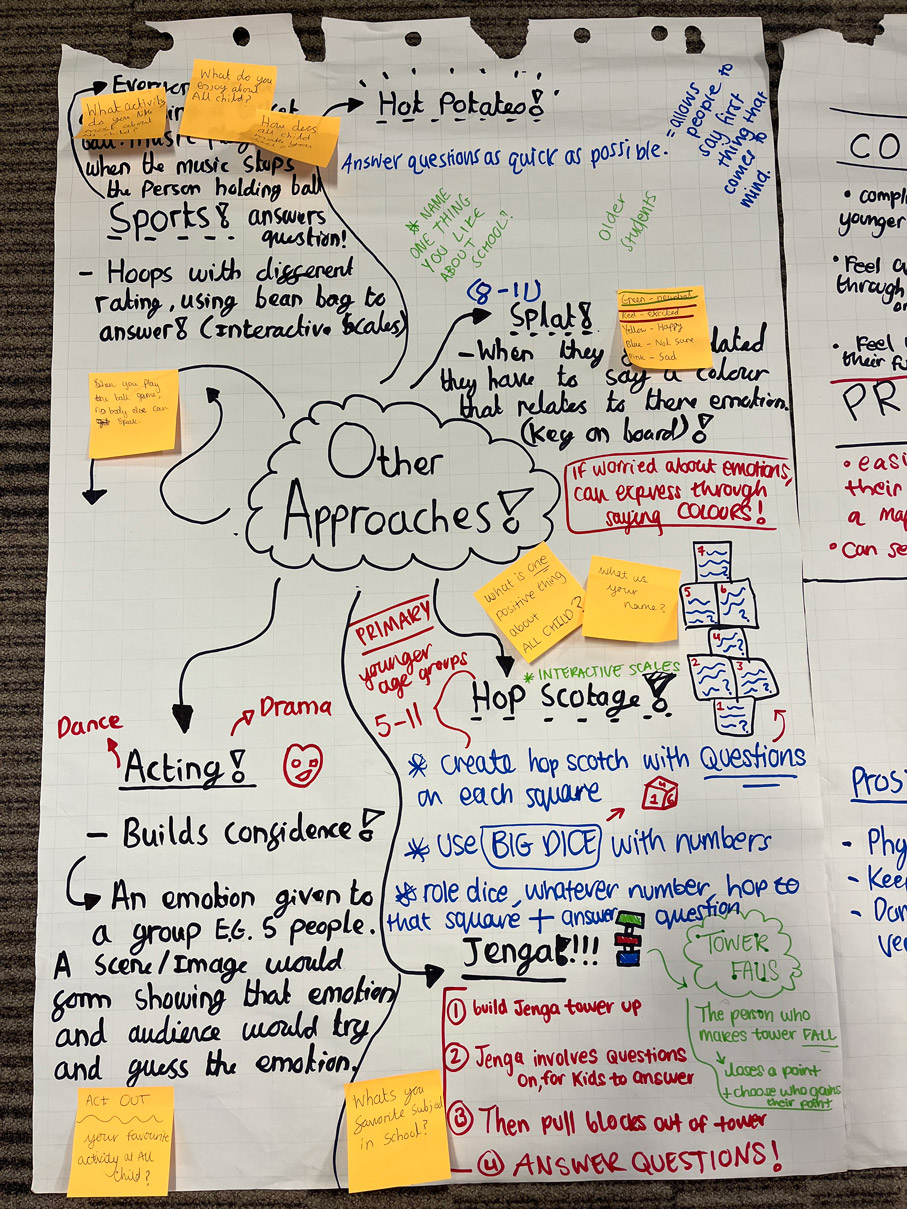
Across these sessions, the peer researchers shared valuable insights that supported the Coram researchers in selecting, adapting and refining the creative research tools that are core to the evaluation. Similarly, peer researchers appreciated the hands-on element of the training:
“The icebreakers... were an entertaining way to not only get to know each other but create ideas that will help us become confident in front of the children we will be discussing the AllChild project with”
“During the training sessions, we created many ideas on various techniques, both qualitative and quantitative, that could be used within a session for a range of age groups”
“The more interactive approach gave me an insight into what the role involves when working directly with young children. Therefore, this made me feel more prepared and equipped for the task ahead”
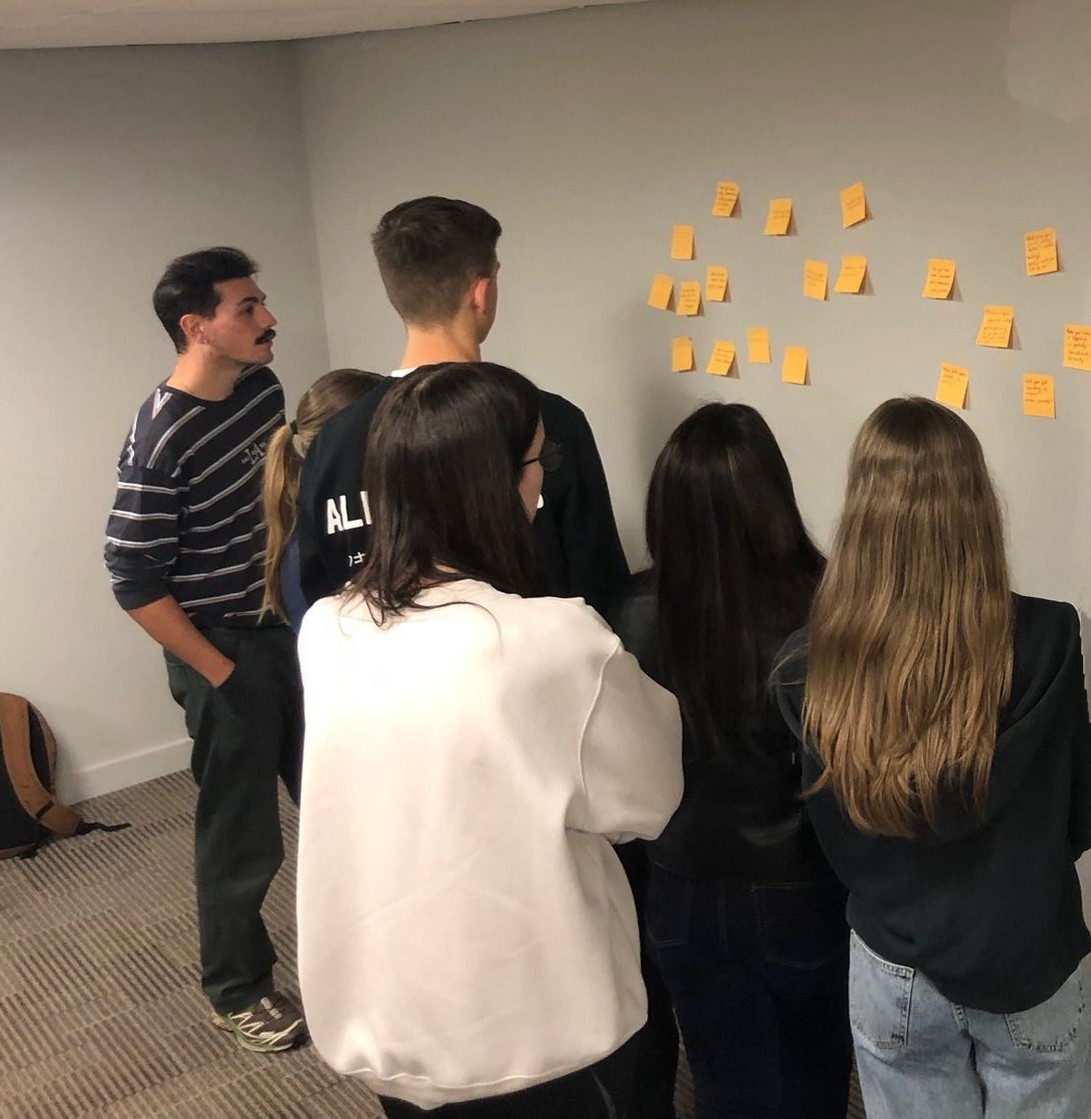
.jpg)
Peer Researcher Spotlight:
Here’s Sam, one of our peer researchers, sharing his thoughts on what being a peer researcher has been like so far
Looking Ahead
Recognising their critical role as part of the AllChild evaluation, peer researchers will receive ongoing support and training from Coram, as well as compensation for their time and contributions. We look forward to seeing the outcome of the collaboration with the peer researchers as they co-deliver creative sessions with the children and young people in our programme, alongside the Coram team. Together, we hope our work can continue to centre local voices as we learn more about how our model can work and be adapted to different contexts.

